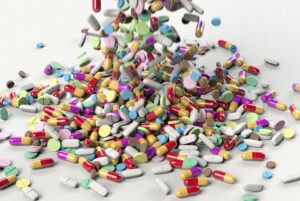 The main results of the Magnetic Resonance Imaging Evaluation of Mineralocorticoid Receptor Antagonism in Diabetic Atherosclerosis (MAGMA) trial, a National Heart, Lung, and Blood Institute (NHLBI)-sponsored trial have been presented at the National Kidney Foundation (NKF) Spring Clinical Meetings (11–15 April, Austin, USA). Although the results of the trial are not final, they offer new information for patients using the generic drug spironolactone. The drug activates white cells and reduces tissue damage, and also reduces proteins that “would normally be considered inflammatory”, according to a press release. This may help to prevent kidney failure.
The main results of the Magnetic Resonance Imaging Evaluation of Mineralocorticoid Receptor Antagonism in Diabetic Atherosclerosis (MAGMA) trial, a National Heart, Lung, and Blood Institute (NHLBI)-sponsored trial have been presented at the National Kidney Foundation (NKF) Spring Clinical Meetings (11–15 April, Austin, USA). Although the results of the trial are not final, they offer new information for patients using the generic drug spironolactone. The drug activates white cells and reduces tissue damage, and also reduces proteins that “would normally be considered inflammatory”, according to a press release. This may help to prevent kidney failure.
“My message to patients is to consider using spironolactone as their generic drug choice if they can for appropriate indications. We want to consider using this drug in high-risk patients with diabetes and atherosclerosis, because the benefit of the drug might extend not only to preventing kidney disease progression but potentially other benefits,” explained Sanjay Rajagopalan (Case Western Reserve University School of Medicine, Cleveland, USA). “Having a drug that works on these systems in a connective manner is a big benefit to a patient, and this drug happens to be one of those.”
A press highlights details of the trial, including that 79 patients were randomised at 4 sites in the USA and Canada to spironolactone (n=37) vs placebo (n=42) for 12 months, after a two-week single-blind placebo lead-in period and four-week dose escalation phase. Mean age was 64±8 years; haemoglobin A1c (HbA1c) 7.3±1.3%; estimated glomerular filtration rate (eGFR) 44 ml/min/1.73m2; baseline systolic blood pressure 132 ±19mmHg.
The results demonstrated a marked reduction in thoracic plaque volume (percentage change in wall volume) response to spironolactone at the end of 12 months compared to placebo. These changes were accompanied by changes in left ventricular mass and fibrosis. Spironolactone treatment did not change clinic systolic blood pressure but did cause a statistically significant change in 24-hour mean systolic and diastolic blood pressures compared to baseline and versus placebo respectively. Spironolactone also reduced left ventricular (LV) wall mass and a measure of LV fibrosis (native T1 values).
Plasma proteomic analysis revealed significant downregulation of a number of pathways involved in immune activation/inflammation, leukocyte activation, proliferation and pathways involved in cytokine stimulation. The top 2 molecules downregulated were DDR2, and oxidized LDL receptor-1 (LOX-1) involved in collagen synthesis and inflammation respectively. Additional top downregulated proteins included known Aldosterone targets such as sodium/potassium-transporting ATPase subunit beta-3 and Adenylyl cyclase-associated protein 1.











